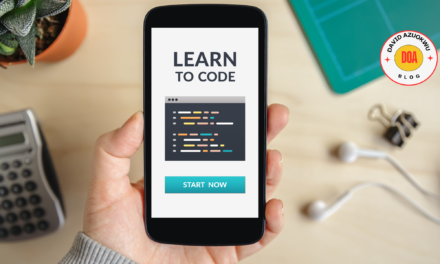Learn to code and open up a world of opportunities, whether you’re looking to change careers, enhance your current skills, or simply enjoy a new hobby. With countless resources available, starting your coding journey is easier than ever. This guide will walk you through the steps on how to learn to code, providing you with practical tips and strategies to become proficient in programming.
Setting Your Goals
Before diving into coding, it’s essential to set clear goals. What do you want to achieve by learning to code? Your goals will help guide your learning path and keep you motivated.
Common Goals for Learning to Code
- Career Change: Transitioning to a tech job, such as a software developer or data analyst.
- Skill Enhancement: Adding coding skills to your current profession, such as marketing or design.
- Building Projects: Creating your websites, apps, or games.
- Understanding Technology: Gaining a deeper understanding of how software works.
- Hobby and Personal Growth: Enjoying the challenge and satisfaction of solving problems through code.
Choosing a Programming Language
Selecting the right programming language is a crucial step. The best language for you depends on your goals and interests.
Popular Programming Languages
- Python: Great for beginners, widely used in web development, data science, and automation.
- JavaScript: Essential for web development, both front-end and back-end.
- Java: Used in enterprise applications, Android development, and large systems.
- Ruby: Known for its simplicity and readability, used in web development.
- C++: Powerful language for system/software development and game programming.
- Swift: Ideal for iOS and macOS app development.
Finding Learning Resources
Numerous resources are available to help you learn to code, from online courses to books and tutorials. Here are some options to consider:
Online Courses and Platforms
- Codecademy: Interactive lessons in various languages, perfect for beginners.
- Coursera: Offers courses from top universities and institutions.
- Udemy: Wide range of courses on different programming languages and technologies.
- edX: Provides courses from universities like Harvard and MIT.
- FreeCodeCamp: Non-profit platform offering free coding lessons and projects.
Books
- “Automate the Boring Stuff with Python” by Al Sweigart: Great for beginners looking to learn Python.
- “Eloquent JavaScript” by Marijn Haverbeke: Excellent for learning JavaScript.
- “Head First Java” by Kathy Sierra and Bert Bates: Engaging way to learn Java.
Tutorials and Documentation
- MDN Web Docs: Comprehensive resource for web development (HTML, CSS, JavaScript).
- W3Schools: Beginner-friendly tutorials on web development.
- Official Documentation: Always refer to the official documentation of the language you’re learning.
Practicing Coding Regularly
Consistent practice is key to becoming proficient in coding. Dedicate time each day or week to practice coding.
Coding Exercises and Challenges
- HackerRank: Coding challenges and competitions.
- LeetCode: Problems and coding challenges to improve your skills.
- Codewars: Community-driven platform with coding challenges.
- Project Euler: Mathematical problems requiring programming solutions.
Building Projects
Applying your skills to real projects helps solidify your knowledge. Start with simple projects and gradually tackle more complex ones.
- Personal Website: Create a portfolio site to showcase your projects.
- To-Do List App: Simple project to practice web development.
- Weather App: Use an API to fetch and display weather data.
- Game Development: Start with simple games like tic-tac-toe or a quiz app.
Joining Coding Communities
Engaging with coding communities can provide support, inspiration, and networking opportunities.
Online Communities
- Stack Overflow: Ask questions and get help from experienced developers.
- Reddit: Join subreddits like r/learnprogramming and r/programming.
- GitHub: Contribute to open-source projects and collaborate with other developers.
- Discord: Find coding-related servers to chat and collaborate.
Local Meetups and Events
- Meetup.com: Find local coding meetups and events in your area.
- Hackathons: Participate in hackathons to work on projects and meet other coders.
- Tech Conferences: Attend conferences to learn from experts and network.
Staying Motivated
Learning to code can be challenging, and staying motivated is crucial. Here are some tips to keep you on track:
Set Realistic Goals
Break your learning journey into smaller, achievable goals. Celebrate your progress along the way to stay motivated.
Track Your Progress
Keep a journal or use a tracking app to monitor your learning progress. Seeing how far you’ve come can boost your motivation.
Take Breaks
Avoid burnout by taking regular breaks. Step away from the screen, relax, and recharge.
Find a Study Buddy
Learning with someone else can make the process more enjoyable and provide accountability. Join study groups or find a coding buddy.
Applying Your Skills
As you gain confidence, start applying your coding skills in practical settings. This can help you transition from learning to doing.
Internships and Part-Time Jobs
Look for internships or part-time jobs that allow you to gain hands-on experience. Practical experience is invaluable for learning.
Freelancing
Offer your coding skills as a freelancer. Platforms like Upwork and Fiverr can help you find clients and projects.
Contributing to Open Source
Join open-source projects on GitHub. Contributing to real-world projects enhances your skills and builds your portfolio.
Conclusion
Learning to code is an exciting journey that opens up numerous possibilities. By setting clear goals, choosing the right language, and practising regularly, you can become proficient in coding. Utilize the wealth of resources available, join coding communities, and stay motivated throughout your learning process. Remember to apply your skills in practical settings to gain real-world experience. With dedication and persistence, you’ll achieve your coding goals and enjoy the many benefits of being able to code. Start today and embrace the rewarding challenge of learning to code!






